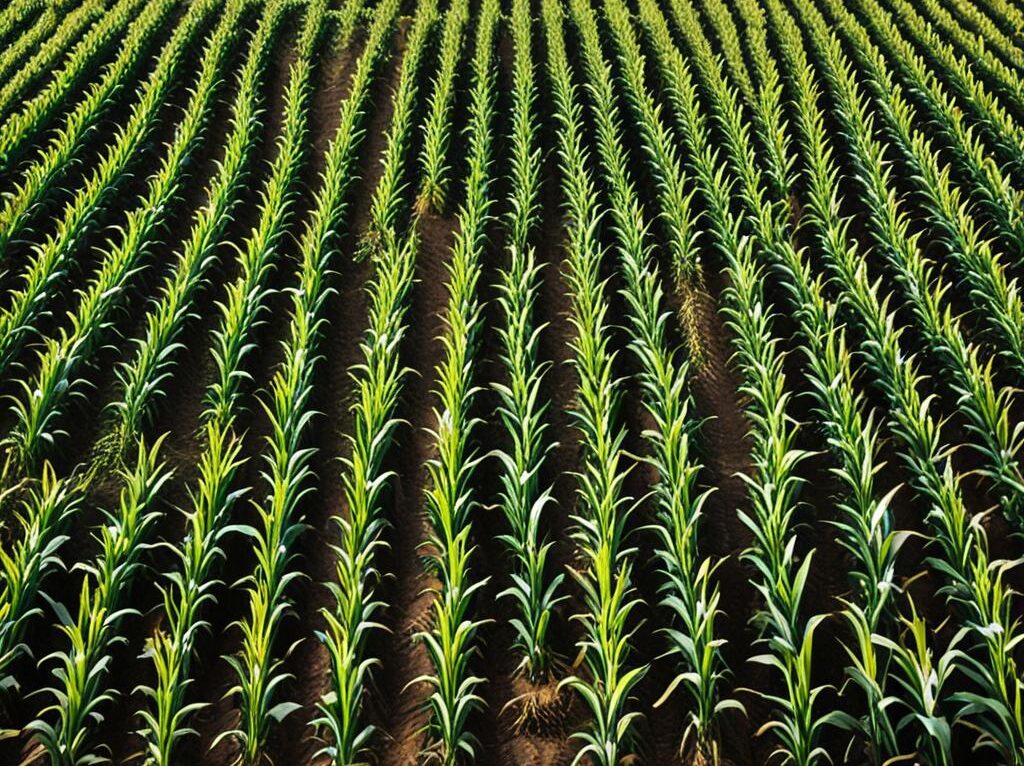The global population has continued to rise and is projected to reach approximately 9.7 billion by 2050. The demand for food is and will continue escalating dramatically. According to the United Nations, food production will need to increase by 70% to meet this burgeoning demand. This presents a tremendous opportunity for agriculture investors. With innovative technologies, sustainable practices, and changing consumer behaviors at the forefront, the agricultural sector is poised for significant growth, making it an attractive avenue for investment.
The Growing demand for Food.
Population Dynamics
The world’s population is growing at an unprecedented rate. More people mean more mouths to feed, leading to increased pressure on food systems. Urbanization is also on the rise, with more people moving to cities where food must be transported from rural areas. This trend not only demands more food but also requires a more efficient supply chain to ensure fresh produce reaches urban centers.
Climate Change and Food Security
Climate change poses a formidable challenge to food production, affecting crop yields and the availability of arable land. Extreme weather events, droughts, and changing climate patterns necessitate the adoption of resilient agricultural practices. Investors who prioritize sustainable and adaptive agricultural technologies can capitalize on this need, creating solutions that ensure food security in a changing climate.
Key Foods in Global Demand
- Cereals and Grains
Grains such as rice, wheat, and corn are staples in diets worldwide. According to the Food and Agriculture Organization (FAO), rice and wheat alone account for approximately 40% of global caloric intake. As populations grow, the demand for these staple foods is expected to increase, making investments in grain production and processing highly promising.
- Meat and Dairy Products
As incomes rise in developing countries, the demand for protein sources like meat and dairy is soaring. The global meat market, particularly poultry and beef, is projected to grow significantly. Dairy consumption, especially yogurt and cheese, is also increasing as health consciousness rises. Investing in sustainable livestock farming and dairy processing technologies can yield substantial returns.
- Fruits and Vegetables
Fresh produce is seeing a significant increase in demand due to the growing trend toward healthy eating. Fruits such as avocados, berries, and bananas are particularly popular, while vegetables like leafy greens and root crops are increasingly sought after. Innovations in greenhouse farming and vertical farming technologies can help meet this demand while conserving resources.
- Plant-Based Proteins
The shift toward plant-based diets is transforming the food landscape. Products like lentils, chickpeas, and soy are gaining popularity as consumers seek healthier and more sustainable protein sources. The plant-based meat market is also on the rise, with companies developing alternatives to traditional meat. Investing in companies that produce plant-based foods can be a lucrative opportunity.
- Nuts and Seeds
Nuts, especially almonds, cashews, and walnuts, are experiencing a surge in demand due to their health benefits and versatility in diets. Similarly, seeds like chia and flaxseed are becoming popular for their nutritional value. Investments in the cultivation and processing of these foods can yield strong returns as health trends continue to shape consumer choices.
Global Food Demand Analysis
Understanding the regional variations in food demand can provide deeper insights into investment opportunities across the globe.
- North America
In North America, particularly the United States and Canada, the demand for organic and health-oriented foods is increasing. Plant-based proteins, organic fruits and vegetables, and dairy alternatives are gaining popularity. The rise of health-conscious consumers is driving investments in innovative farming methods, including hydroponics and aquaponics. The U.S. is also a significant producer of grains, with corn and soybeans being critical for both human consumption and livestock feed.
- Europe
Europe is characterized by a strong emphasis on sustainability and food quality. Organic farming is thriving, and the demand for local, ethically sourced foods is on the rise. Countries like Germany and France are leading in organic food consumption. The European Union’s stringent regulations on food safety and sustainability are pushing innovation in food production, making it a fertile ground for investors focusing on eco-friendly practices and technologies.
- Asia
Asia is witnessing explosive growth in food demand, driven by countries like India and China.
China. As the world’s largest consumer of meat, China is shifting toward more protein-rich diets. The demand for pork, poultry, and dairy products is significant, prompting investments in sustainable livestock farming. Additionally, the popularity of imported fruits and organic products is rising, making them lucrative markets for foreign investors.
India. With a young and rapidly growing population, India has a high demand for cereals, pulses, and vegetables. The government’s focus on agricultural reforms and food security presents opportunities in technology-driven farming practices and supply chain innovations.
- Africa
Africa’s population is projected to double by 2050, leading to a surge in food demand. Staple foods such as maize, rice, and cassava will continue to be in high demand, while there is also growing interest in fruits and vegetables, particularly in urban areas. Investments in irrigation technologies and sustainable practices can significantly impact food production in this region, addressing food security challenges.
- South America
Countries like Brazil and Argentina are major producers of soybeans and beef. The demand for animal protein is rising, especially in urban centers, leading to increased investments in livestock and dairy production. Additionally, Brazil’s burgeoning market for fruits such as tropical fruits and berries presents new opportunities for investors looking to capitalize on emerging food trends.
Investment Opportunities in Agriculture
- Technological Innovation
The integration of technology into agriculture is transforming the industry. Innovations such as precision farming, drones, and artificial intelligence (AI) are enabling farmers to optimize their operations, reduce waste, and increase yields.
Precision Agriculture. Utilizing sensors and GPS technology, farmers can monitor crop health and soil conditions, leading to more informed decisions and efficient use of resources.
Vertical Farming. Urban vertical farms utilize controlled environments to grow food in urban settings, reducing transportation costs and providing fresh produce year-round.
Biotechnology. Advances in genetically modified organisms (GMOs) and CRISPR technology enable the development of crops that are more resistant to pests and climate conditions.
Investors who back startups and companies that focus on these technologies are likely to see substantial returns as demand for efficiency and sustainability in food production rises.
- Sustainable Agriculture
As consumers become more environmentally conscious, sustainable agriculture practices are gaining traction. This includes organic farming, regenerative agriculture, and agroecology, all of which prioritize soil health, biodiversity, and reduced chemical use.
Organic Farming. With the organic food market expected to grow, investors can find opportunities in organic certification, supply chain management, and organic input production.
Regenerative Practices. Investing in companies that promote regenerative practices can yield long-term benefits, not only for the environment but also for profitability as consumers increasingly seek ethically produced food.
- Agri-Tech Startups.
The agri-tech sector is booming, with numerous startups emerging to address the challenges of food production. Investing in these companies can be lucrative as they often bring innovative solutions to market.
Blockchain for Supply Chain Transparency. Blockchain technology can enhance traceability in the food supply chain, providing consumers with information about the origin and safety of their food.
Agricultural Robotics. Automation in planting, harvesting, and monitoring crops can reduce labor costs and increase efficiency, making it an attractive investment area.
- Investment in Land.
Investing directly in agricultural land can be a solid strategy. With limited arable land and increasing demand, land values are likely to appreciate. Additionally, agricultural land can provide a stable income through leasing to farmers or growing crops directly.
The Risks and Considerations
While the agricultural sector presents numerous opportunities, it is not without risks. Climate change, regulatory changes, and market volatility can impact investments. Investors should conduct thorough due diligence, focusing on companies and practices that prioritize sustainability and adaptability.
Market Volatility. Crop prices can fluctuate based on supply and demand, impacting profit margins. Diversifying investments can mitigate some of this risk.
Regulatory Landscape. Changes in agricultural policy, trade agreements, and subsidies can affect investment returns. Staying informed about regulatory developments is crucial.
The increasing global population and the subsequent demand for food create a fertile ground for agricultural investors. By focusing on technological innovations, sustainable practices, and the burgeoning agri-tech sector, investors can position themselves to capitalize on the future of food production. As we look ahead, those who embrace change and invest wisely in this essential industry are likely to see substantial rewards, possibly becoming the billionaires of tomorrow. The agriculture sector is not just about food; it is about feeding the future sustainably and profitably.



